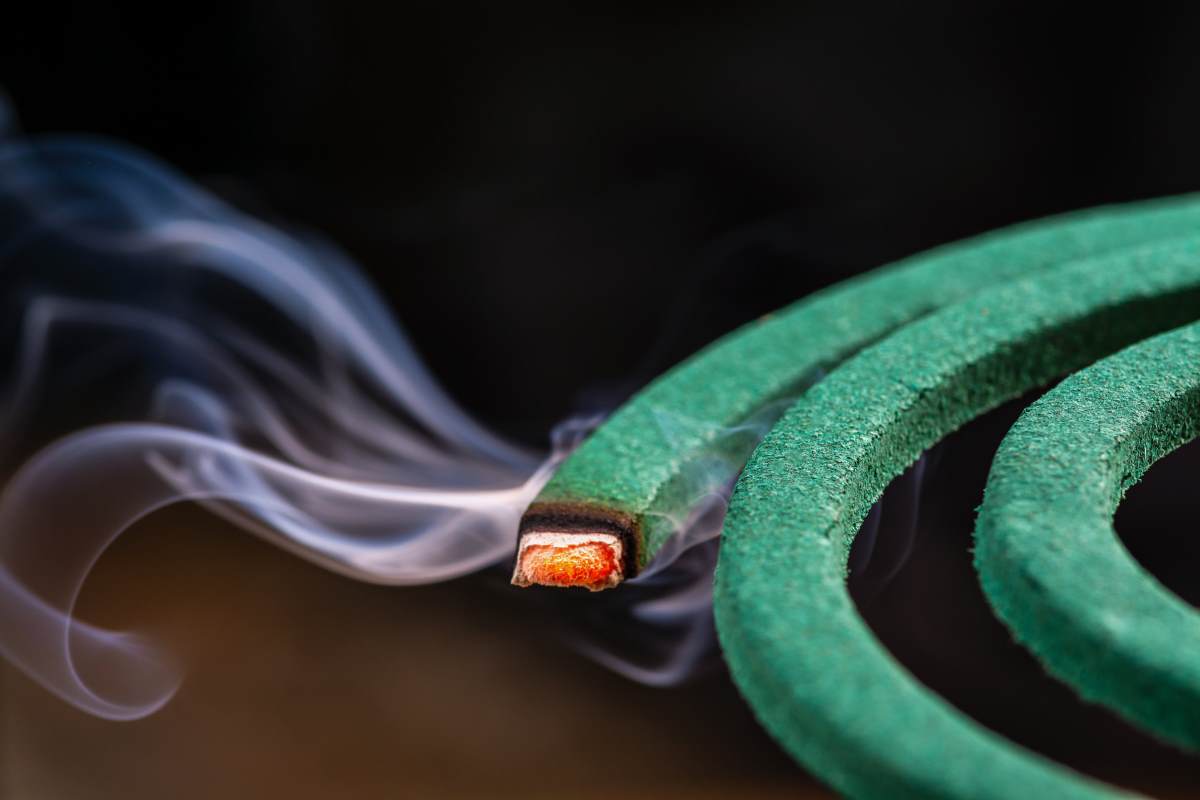How do the classic anti-mosquito spirals work? Are they dangerous to health? The answer already lies in two words: they contain pesticides. You do. If you really want to use them, keep in mind a simple precaution. Otherwise, give up and try our green tips
Electric rods to decrease the salt
They’re cheap, take anywhere, and generally seem effective at reducing mosquito bites, but do we know all about coils? The sight and smell of those smoking spirals are one must during the summer, but isn’t breathing that smoke that keeps swarms of mosquitoes away is worse for our health than the bites themselves?
The answer may lie in a study that the particulate matter produced by the combustion of a coil would be equivalent to burning between 75 and 137 cigarettes. A type of exposure, therefore, which cannot fail to represent a health risk, even if from a purely scientific point of view there would be no clear evidence that long-term exposure to smoke from mosquito coils increases the risk of impacts more serious health problems such as lung cancer.
The game is not worth the candle, but we would like to say, or at least the key message should be to avoid prolonged exposure, especially in spaces. closed: if the substance released by the coaster is lethal to insects but harmless to humans, the problem is still passive smoking.
What is a zampirone and what is it made of
The mosquito coil from the classic green is essentially a kind of incense made with Dalmatian pyrethrum, a flower containing pyretin, a substance that is able to act on the nervous system of insects and kill them.
The properties of the flower were exploited at the end of the 19th century by the chemist Giovanni Battista Zampironi, who founded a laboratory in Mestre to produce Zampirina, a pyrethrum powder to be inserted into an insect repellent cone. Later, on the other side of the world, two Japanese had the same intuition and produced the first spiral-shaped anti-mosquitoes in order to make them burn longer. Zampironi adopted the same form and Zampirone thus became the name of the mosquito incense par excellence.
That said, it would seem that the anti-mosquito coils contain only flowers, but in reality they are a collection of several substances. Along with products that deter mosquito bites, there are also products that hold the coil itself together and allow it to burn slowly. They work in two ways: some contain insecticides that will kill (or at least “kill”) mosquitoes, others contain aromatic substances (such as citronella) will repel mosquitoes or reduce the likelihood of them biting.
Specifically, they contain the d-alletrinathat is a pyrethroids, that is, a molecule created in the laboratory that mimics the action of the flower. Mosquitoes stay away when they feel the coaster’s presence, because its fumes are extremely toxic and act on the insect’s nerve fibers.
So there remains a question: are coils harmless or toxic? The concern, the experts point out, should be concentrated only if the coils are turned on indoors. The insecticidal products used are generally considered safe, but it is the particulate matter produced by a smoking mosquito coil that poses the greatest risk.
The solution? Do not buy coils: from DIY candles to repellent plants, here we explain how to eliminate mosquitoes and how to defend yourself.
Follow your Telegram | Instagram | Facebook | TikTok | Youtube
Fonti: Sidney University / Environmental Thematic Group – Ifakara Health Institute
Read also:
